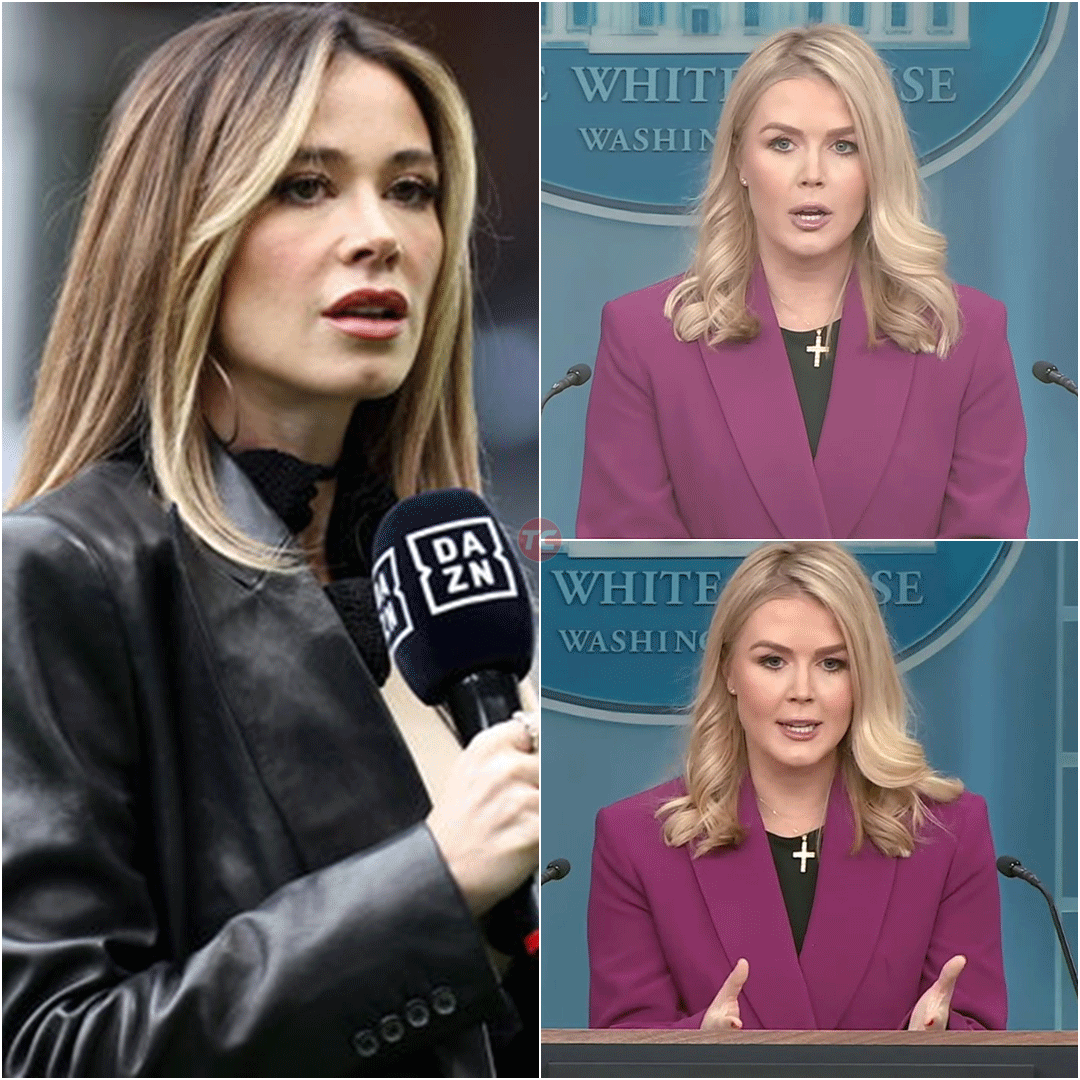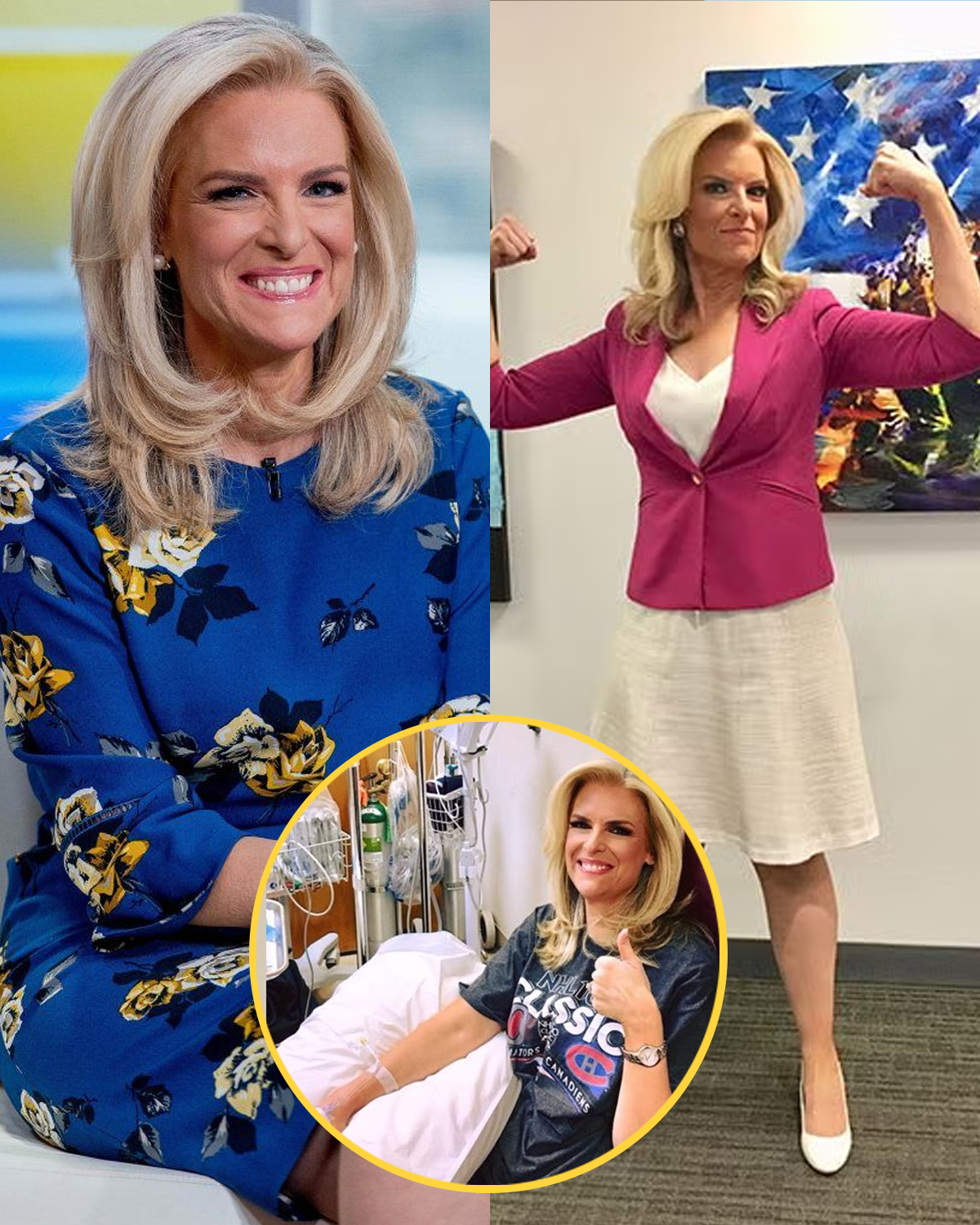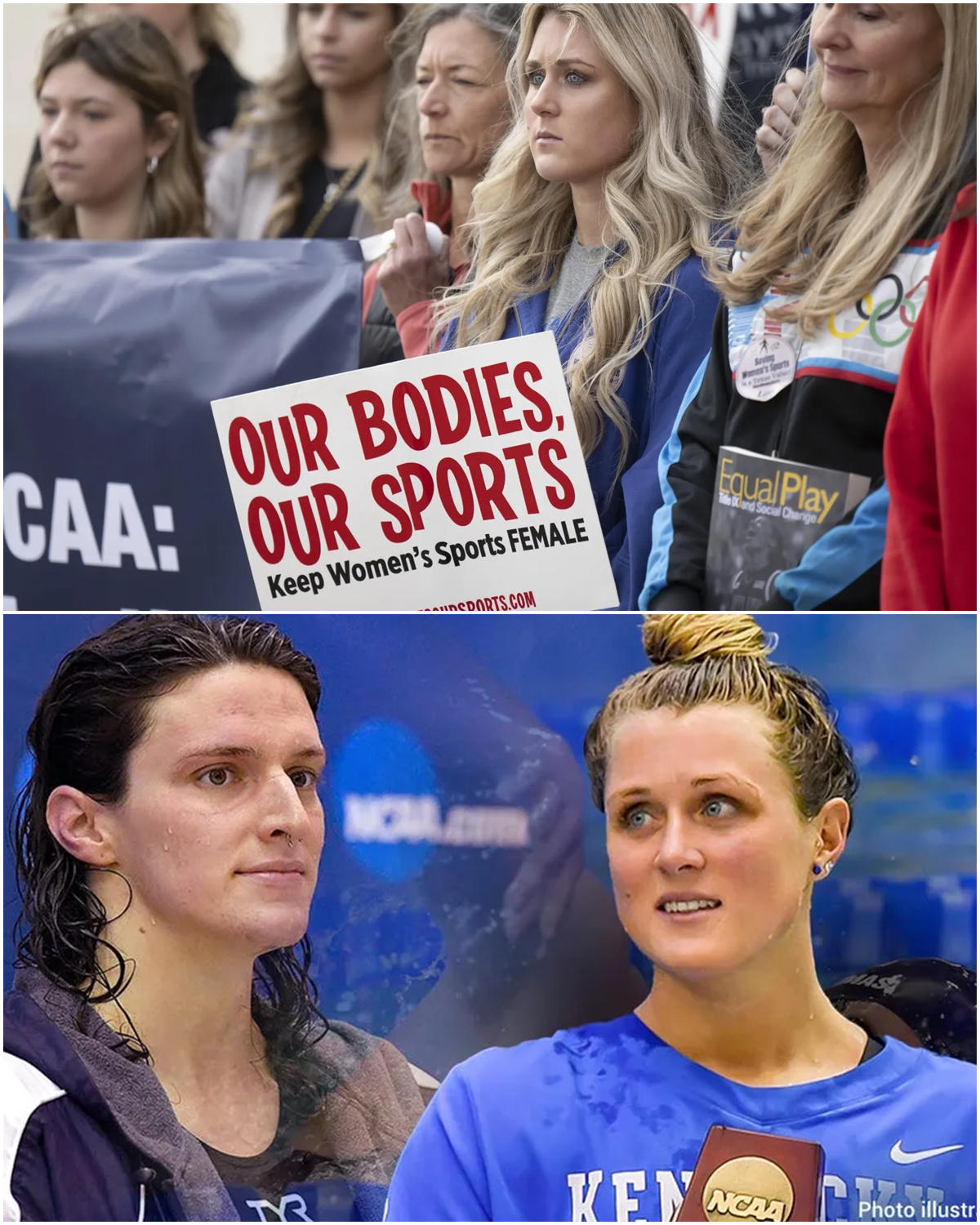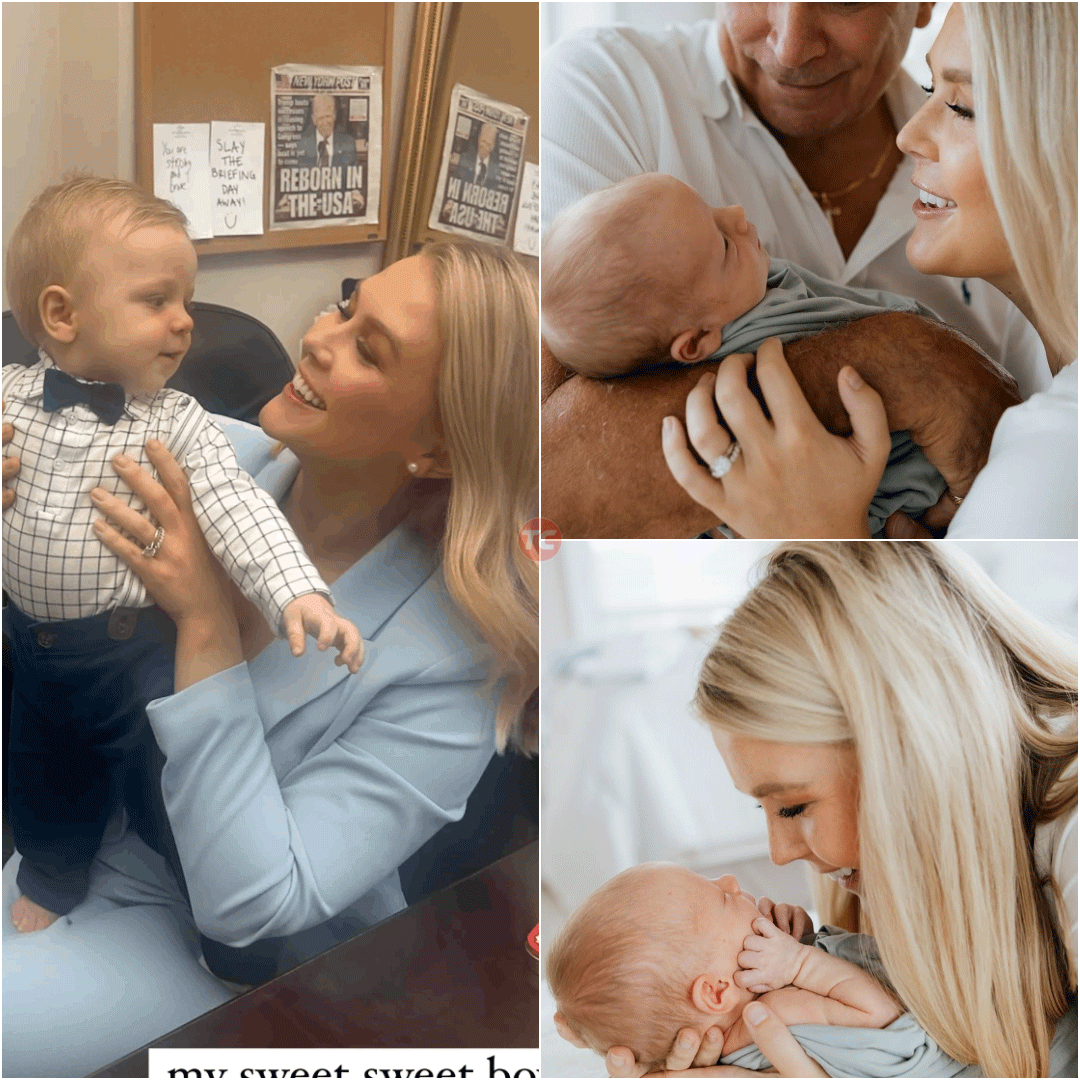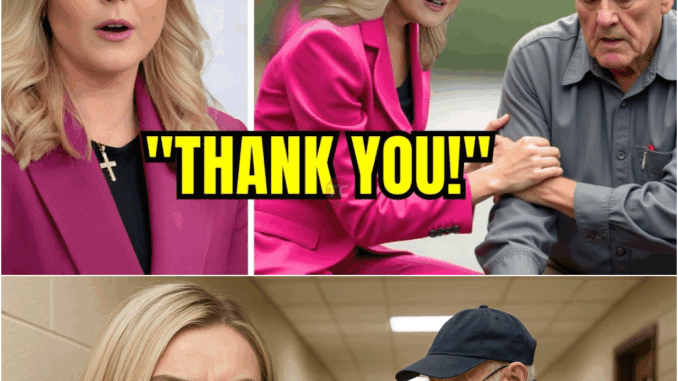
Caroline Leavitt Honors Her High School Janitor in a Heartwarming Atkinson Reunion

A Journey Back to Atkinson
Under the pale winter sunlight of Atkinson, New Hampshire, Caroline Leavitt stepped out of a black SUV, her breath visible in the chilly air. The red-brick walls of Atkinson High School loomed before her, a nostalgic painting of her past. As the White House Press Secretary, Caroline was accustomed to the relentless pace of Washington, DC—flashing cameras, microphones, and the constant scrutiny of her every word. But here, in this small town, she was just Caroline, the girl who once dreamed big while practicing speeches in the school’s radio room. She had returned to speak at an educational event promoting student engagement in politics, but deep down, she sought something more: a reconnection with the roots that shaped her.
The school’s long hallways, faintly scented with old wood, were adorned with posters about debate competitions and environmental campaigns, now interspersed with modern touchscreens. As Caroline walked through the main door, the creak of the hinges felt like a greeting from the past. The hallway was quiet, save for a few students laughing near lockers over an Instagram video. No one recognized her, and that anonymity brought her a rare sense of relief. Here, she wasn’t the polarizing figure mocked for a red dress or scrutinized for her political statements. She was simply a former student, reminiscing about the days her voice trembled in front of a mirror in the radio room.
An Unexpected Reunion
Caroline’s journey took a profound turn when she spotted a frail figure in the distance—an elderly man in a dark green jacket, sweeping the hallway with steady, deliberate strokes. Fluorescent lights highlighted his thin white hair and deep wrinkles, and a sense of familiarity stirred within her. As she approached, the man looked up, offering a faint, warm smile. “You here for the event?” he asked, his voice low but clear, carrying the weight of decades spent talking to students.
“I used to study here, a long time ago,” Caroline replied, her tone hesitant. The man leaned his broom against the wall, wiping his hands on his jacket. “This school’s seen a lot of people pass through. What year were you?” Before she could answer, his deep brown eyes, bright with the wisdom of years, made her pause. “Are you Mr. Thompson? Mr. Harold Thompson?” she exclaimed, her voice a mix of astonishment and emotion.
The old man chuckled softly, studying her closely. “You remember me? My eyes aren’t what they used to be, but your voice sounds familiar.” Caroline stepped forward, unable to contain her emotions. “I’m Caroline Leavitt—the girl who used to sneak into the radio room every morning to practice speaking.” Mr. Thompson’s eyes lit up, the wrinkles on his face softening. “Caroline, my goodness—that little girl’s famous now!” He extended a rough but warm hand, as if carrying the memories of long years.
“You’re still working here after all these years?” Caroline asked, incredulous. Mr. Thompson shrugged, his smile fading slightly. “Forty-seven years. Just turned 80 last week.” Her heart tightened. This man, who had unlocked the radio room for her, who waited until she finished her speeches to lock up, was still cleaning these hallways when he should have been resting. “Why haven’t you retired?” she asked, her voice trembling. He looked down at his worn shoes, replying softly, “Eleanor, my wife, is very sick. Medicine’s expensive. Plus, I like it here—the kids make me feel young.”
A Debt of Gratitude
Mr. Thompson’s words hit Caroline like a knife. She remembered those early mornings when he handed her a bottle of water, saying, “You’ve got leadership in you—don’t let anyone tell you otherwise.” He wasn’t just a janitor; he was the one who believed in her when she doubted herself. She recalled sobbing after losing a debate competition, and how he sat beside her, sharing stories of his own struggles—working at a factory, getting laid off, but rising again. “Life’s not fair, but you’ve got to make it fair for yourself,” he had said. Those words propelled her from the radio club to the White House.
Now, standing before him, Caroline felt a pang of guilt. She had gone far, standing under the national spotlight, while he remained here, day after day, with his broom and empty hallways. “Mr. Thompson, can I take you to dinner? I want to hear more about you,” she offered, her voice sincere. He looked surprised, waving her off. “You’re busy—I don’t want to bother you.” But Caroline shook her head, smiling. “You’re the most important person I want to see today.”
A Dinner That Sparked a Movement
At a small diner on Atkinson’s main street, the flickering neon lights cast a warm glow on the snow-covered sidewalk. Inside, the diner was a snapshot of small-town life—red vinyl booths, a jukebox humming old country tunes, and a chalkboard menu boasting homemade pie. Caroline sat across from Mr. Thompson, her tailored coat contrasting with the worn vinyl, while he eased himself in, his joints creaking. “Thank you for coming with me,” she said, her eyes sparkling with warmth.
Mr. Thompson chuckled, adjusting his faded cap. “Didn’t expect to be having dinner with a celebrity tonight. This place hasn’t changed—still serving the same burgers from when I took Eleanor here on our first date.” The mention of Eleanor made Caroline’s heart ache. She leaned forward. “How’s Eleanor doing? You said she’s very sick.” His face stiffened, the wrinkles deepening. “She’s hanging in there—arthritis and a weak heart keep her homebound. We manage, but that’s why I’m still sweeping school hallways. Got to pay for her medicine.”
The waitress interrupted, setting down iced tea, and recognized Caroline from TV. A teenage girl at the counter took a sneaky photo, likely for Instagram, but Caroline ignored it, focusing on the man across from her. “Tell me about your years at the school,” she urged. “What kept you there so long?” Mr. Thompson’s gaze grew distant. “I started there before you were born—thought it’d be temporary, but the kids kept me there. I watched them grow, stumble, and get back up—like you.” He paused, smiling. “You were a hard worker, always in the radio room, talking to yourself like the whole world was listening.”
Caroline laughed, memories flooding back. “I remember you standing outside the door, pretending to clean the glass but really checking if I was okay.” Mr. Thompson nodded. “You’d practice speeches till late, and I couldn’t bring myself to shoo you out. Once, you gave a speech about freedom—your voice filling the room. I thought, ‘This kid’s going places.’”
A Resolve to Give Back
His words silenced Caroline. She looked down at her tea, the ice cubes clinking. “Do you know how much your words meant? When I lost that debate competition, I thought I was worthless, but you told me failure is the first step to success. I carried that with me all the way to the White House.” Mr. Thompson shrugged, as if it were no big deal. “I just told the truth. You had fire in you—you just needed someone to remind you not to let it go out.”
Caroline gripped her tea glass tightly, resolve flaring. “Mr. Thompson, you helped make me who I am today. I want to do something to thank you.” He waved her off, laughing. “You buying me dinner is enough—don’t do anything big. I’m not used to that.” But Caroline shook her head, her eyes blazing. “You deserve more than that. I don’t know what yet, but I’ll figure it out.”
As they stepped out of the diner, the Atkinson cold wrapping around them, Caroline watched Mr. Thompson’s figure fade into the night. Her heart was heavy, but a fire had been ignited. She climbed into the SUV and dialed her chief aide, Sarah. “I want to hold an event in Atkinson—a tribute for a janitor who’s worked 47 years. We need a retirement fund for him.” Despite Sarah’s warnings about media scrutiny, Caroline was undeterred. She knew this wasn’t about politics or PR—it was about doing what was right.
A Community United
Over the next few days, Caroline rallied the Atkinson community. She worked with Emma, a former student and local business owner, to secure sponsors, and Mia, an 11th grader, to create a viral video about Mr. Thompson’s impact. Despite resistance from some—local businessman Mr. Bradley pulled his sponsorship, fearing media backlash—Caroline persevered. She faced skepticism from the PTA, who worried the event would become a political stage, but she remained steadfast. This was for Mr. Thompson, not her.
The ceremony at Atkinson High School was a night to remember. The auditorium glowed with twinkling lights, and a banner reading “Thank You, Mr. Thompson” hung above the stage. Over 200 people—students, teachers, alumni, and residents—gathered to honor him. A video showcased Mr. Thompson’s 47 years of service, narrated by Mia, who shared how he lent her money for books when her family struggled. Caroline announced a retirement fund for Mr. Thompson and Eleanor, ensuring they could live comfortably, and a scholarship in his name for students pursuing media or politics.
Mr. Thompson, overwhelmed, wiped tears as the crowd gave him a standing ovation. “I just did my job,” he said, his voice trembling, “but seeing you all here, I feel so lucky.” Caroline stood beside him, her heart full. This was more than a ceremony—it was proof that a small town could create miracles when united.
A Lasting Legacy
The event’s impact rippled beyond Atkinson. Jake’s video hit half a million views, inspiring other schools to launch similar initiatives. Mr. Thompson and Eleanor planned their first trip in years—a short vacation to the Maine coast. Back in DC, Caroline faced the press, undeterred by accusations of a PR stunt. She proposed a national initiative to honor unsung workers, carrying forward the lesson Atkinson taught her: true value lies in small acts of kindness.
As snow fell gently on Atkinson, a new plaque at the school gate read “Harold Thompson Scholarship for Silent Dreams.” Caroline smiled, knowing his legacy would live on through supported students and retold stories. She had rediscovered herself—not as the White House Press Secretary, but as Caroline, the Atkinson girl who believed one small act could transform a community.
⚠️ DISCLAIMER 🚨 The story presented on this channel are entirely fictional and crafted solely for entertainment. Any resemblance to real events, individuals, or situations is purely coincidental and unintentional. These narratives are not intended to depict, reference, or represent any actual occurrences, persons, or entities.





